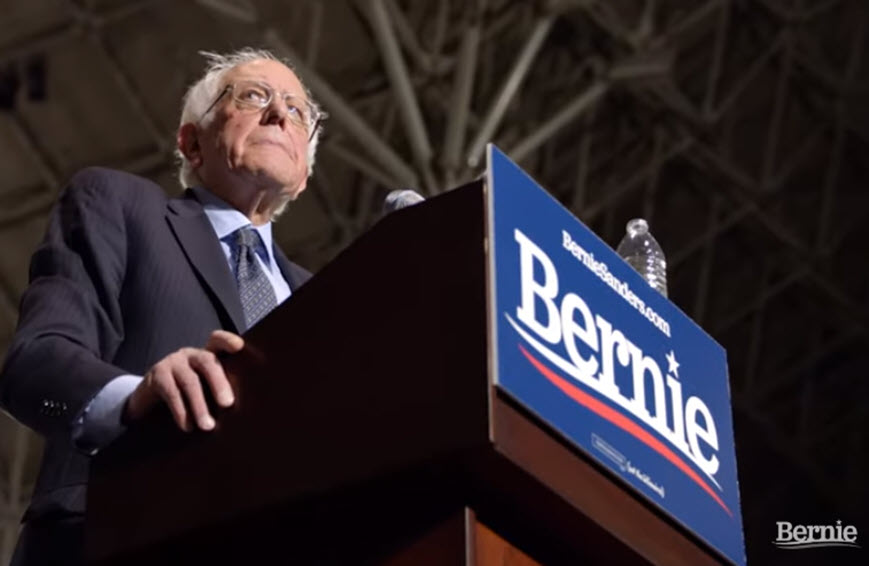Sanders Proposes Banning TV Ads in Primary Debates

The smarter way to stay on top of broadcasting and cable industry. Sign up below
You are now subscribed
Your newsletter sign-up was successful
Sen. Bernie Sanders has said that if he is elected President, he will ban advertising in televised primary debates.
That came in a plan released Monday (Oct. 7) to get money out of politics. That release came a couple of days after Sanders was released from the hospital after surgery to put stints in a blocked artery.
Sanders called out CNN in an online outline of the plan. CNN is hosting the next Democratic televised debate Oct. 15.
"Private media outlets charge outrageous sums of money to run ads during presidential primary debates," his campaign web site said. "This year CNN reportedly required a commitment of $300,000 before a sponsor could buy ad time during the presidential debates, and 30 seconds of air time can cost around $110,000."
Sanders says that represents the kind of influence that must be rooted out given that "many of their advertisers have vested interest in who is elected," adding that "[p]rivate media outlets are making enormous sums of money during events that are meant to inform the public about their candidates."
Sanders' proposal would also take more bites out of TV political ad budgets by 1) "ending political spending by 501c4s and other organizations who accept unlimited contributions or do not disclose donors" and 2) pushing a constitutional amendment to overturn the Supreme Court's Citizens United decision. That is the Supreme Court ruling that allows corporations and unions to fund electioneering ads in the run-up to federal elections because, the court held, the previous ban on such funding violated their speech rights.
The smarter way to stay on top of broadcasting and cable industry. Sign up below
Contributing editor John Eggerton has been an editor and/or writer on media regulation, legislation and policy for over four decades, including covering the FCC, FTC, Congress, the major media trade associations, and the federal courts. In addition to Multichannel News and Broadcasting + Cable, his work has appeared in Radio World, TV Technology, TV Fax, This Week in Consumer Electronics, Variety and the Encyclopedia Britannica.

